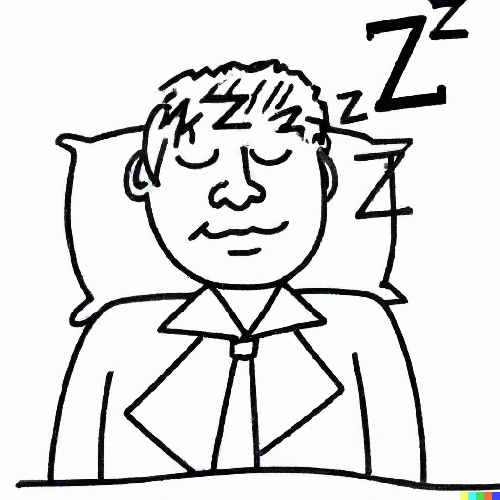If you sleep five hours or less per night and are middle-aged or older, new research shows that you may be increasing your risk of serious illness later in life.
It's rare that we get the benefit of studies that carefully track large numbers of individuals over the course of many years of their lives. But that is the case with the Whitehall II study, a longitudinal research project that has followed the health outcomes of 10,308 participants since 1985. The study group started with 3413 women and 6895 men, aged 35 to 55, all of whom worked for the British Civil Service and were healthy at the start of the study. The researchers have collected questionnaire and clinical data every two to five years since then.
Sleep was one of the health-related variables studied, assessed using participants' self-reports and, in the 2012 assessment, wrist-worn accelerometers. The researchers were particularly interested in a possible link between sleep and the emergence of chronic conditions including diabetes, cancer, heart disease, stroke, chronic obstructive pulmonary disease, arthritis, depression, Parkinson's and dementia.
The results were striking. People who reported sleeping 5 or fewer hours per night at age 50 had a 30% higher risk of developing two or more chronic illnesses by age 70 compared to peers who got 7 hours of sleep per night. Short sleep duration at age 60 led to a 32% higher incidence of two or more chronic illnesses later in life. People who reported sleeping 5 or fewer hours per night at age 70 had a 40% higher risk of suffering two or more chronic illnesses within the next six years.
In other words, throughout people's middle years, short sleep duration predicts a substantially higher risk of developing one or more serious chronic conditions. Interestingly, in this study short sleep did not appear to increase mortality. It would appear that short sleep duration across one's middle years impacts the quality of later life, but not necessarily its length.
The fact that short sleep duration preceded the onset of chronic disease, in many cases by decades, clearly supports a cause-and-effect relationship. However the research does not reveal what biological factors may mediate or control that relationship. "It remains unclear how sleep duration may be associated with risk of multimorbidity," says epidemiologist and lead researcher Severine Savia. A variety of mechanisms have been proposed, including poorer sleep quality and its impact on endocrine and metabolic functioning, but further research is needed to clarify just how short sleep increases the risk of chronic illness.
The research also leaves open the important question as to whether changing one's sleep habits and boosting sleep duration out of the apparently hazardous 5-hours-or-less range would lead to better health outcomes. Based on the consistent findings of the research at every age range, that's not an unreasonable assumption, but it remains to be proved.
Even without that proof in hand, Savia points us in that direction. "It's important to take care of our sleep," she says. "Healthy sleep habits are a must."
--
Reference (open source): "Association of sleep duration at age 50, 60, and 70 years with risk of multimorbidity in the UK: 25-year follow-up of the Whitehall-II study," Public Library of Science, October 18, 2022.
(Note: You can view every article as one long page if you sign up as an Advocate Member, or higher).





